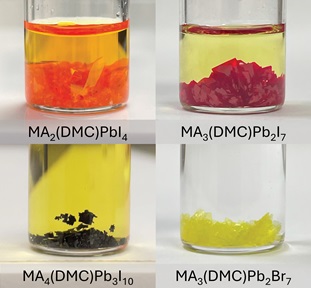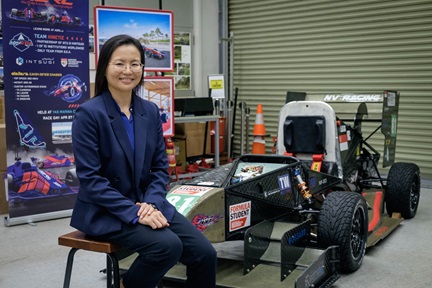Financial boost to research in health and sustainability
Substantial grants awarded to NTU researchers to drive innovations in energy, electronics and antimicrobials.

Using the novel polymers they recently discovered, Prof Mary Chan of the School of Chemical and Biomedical Engineering (SCBE) and Assoc Prof Kevin Pethe of NTU’s Lee Kong Chian School of Medicine, together with other researchers from SCBE and NTU’s School of Physical and Mathematical Sciences, will develop novel agents that are able to selectively disrupt bacterial membranes. Their project, “Targeting bacterial membrane biology with novel main chain cationic polymers”, received a grant of S$9.8 million (US$7.2 million) over five years from Singapore’s Ministry of Education.
——————
Similar to how space-time geometry determines unusual phenomena at cosmological length scales, mathematical concepts to understand geometry at microscopic scales—called quantum geometry—govern how quantum particles propagate in crystalline materials. Led by Prof Xiong Qihua, a team from NTU’s School of Physical and Mathematical Sciences and School of Materials Science and Engineering, together with scientists from the National University of Singapore, won a large grant from Singapore’s Ministry of Education of S$8.6 million (US$6.3 million) over five years for their project, “Geometrical Quantum Materials (GQMs)”. The research aims to break new ground in advanced designer materials for low-power electronics, nonlinear optoelectronics and magnetoelectrics applications.
——————
A programme aimed at creating highly-efficient and commercially viable halide perovskite solar cells for large-area deployment and building-integrated photovoltaics has won a grant of approximately S$5 million (US$3.7 million) over three years from Singapore’s National Research Foundation. Led by Assoc Prof Thirumany Sritharan and Assoc Prof Nripan Mathews of NTU’s School of Materials Science and Engineering and Dr Koh Teck Seng of the School of Physical and Mathematical Sciences, the “NTU Perovskite Intra Create Project” will focus on increasing the stability and cost-effectiveness of perovskite solar cells while decreasing their toxicity.



.tmb-listing.jpg?Culture=en&sfvrsn=29c7e020_1)
.tmb-listing.jpg?Culture=en&sfvrsn=ab6472c8_1)
.tmb-listing.jpg?Culture=en&sfvrsn=55153609_1)

